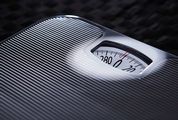NEW YORK — Christopher Edginton was taking medication and trying to improve his diet when his cholesterol shot up anyway four years ago. His doctor suggested a new approach.
"He said you’ve got to get rid of some things you’re doing, some of the stresses in your life," recalls Prof Edginton, a professor at the University of Northern Iowa who regularly travelled internationally and had so many job titles that he had a four-sided folding business card.
Prof Edginton heeded the doctor’s advice.
Now 69 years old, Prof Edginton is down to one teaching job and some scaled-down responsibilities in professional organisations.
His level of so-called bad cholesterol, or low-density lipoprotein (LDL), has dropped to 62 milligrammes per decilitre from 121mg/dL in 2012. (The latest cholesterol-treatment guidelines, from 2013, no longer set specific targets; his doctor says 50 to 70 is reasonable for Prof Edginton, who had two previous heart attacks.)
Of all the factors contributing to high cholesterol, many cardiologists say one often goes unmentioned in advice for patients: stress.
Yet chronic stress from a tough job, a strained relationship or other anxiety-producing situations can play a role — along with poor diet, smoking and lack of exercise — in causing lipid concentrations to rise, they say.
Cholesterol deposited by LDL can accumulate in the arteries, a condition known as atherosclerosis, which can reduce blood flow.
"Stress will make your cholesterol go up," says Stephen Kopecky, a preventive cardiologist at the Mayo Clinic in Rochester, Minnesota, who is treating Prof Edginton. "Without a doubt, that has been under-recognised."
Understanding the effect of stress on cholesterol is becoming more important as people’s lives increasingly are crammed with obligations, and digital technology makes switching off harder than ever, cardiologists say.
Nearly 28% of US adults age 20 and older either have high total cholesterol or are on cholesterol-lowering drugs, according to the Centers for Disease Control and Prevention. The CDC defined high cholesterol as 240 mg/dL and above.
Of most concern is chronic stress, which taxes the body over time, rather than episodes of short-term stress resulting from surprises or temporary difficulties, cardiologists say.
Chronic stress can lead to higher cholesterol in several ways.
People may stop exercising, or add more unhealthy foods to their diet.
Stress also stimulates the release of the hormones cortisol and adrenaline, part of a "fight or flight" mechanism the body adopts to protect itself.
Those hormones in turn stimulate the release of triglycerides and free fatty acids, which over time can boost LDL cholesterol, says Catherine Stoney, programme director in the division of cardiovascular sciences at the National Heart, Lung and Blood Institute, part of the National Institutes of Health.
To drive the point home, Dr Kopecky tells patients about a classic study that documented a sharp rise in the cholesterol levels of 18 tax accountants around the April 15 deadline for filing US individual income tax returns.
Their total cholesterol rose on average from 206 mg/dL in January to 232 on April 15, then dropped back down to 215 in June.
The diets and exercise levels of the accountants, who ranged in age from 28 to 50, remained consistent during the study period, suggesting the changes were due to stress, the study’s authors wrote.
The study published in the journal Circulation in 1958, is nearly six decades old but Dr Kopecky says he continues to bring it up because "we can all relate to paying taxes".
Subsequent research has shown similar effects.
Cholesterol levels, both the total level and LDL, in a group of more than 100 airline pilots rose about 5% when they were under high stress, according to a study published in 1999 in the journal Health Psychology.
The researchers tested the pilots before and after what many considered to be one of the most stressful aspects of their jobs — recertification exams, says Dr Stoney, the study’s lead author.
The pilots’ cholesterol levels also rose after they were subjected to stressful scenarios in a laboratory, such as a requirement to give a speech on short notice, she says.
Exactly how much stress contributes to high cholesterol is not clear, experts say.
It is harder to measure than changes in diet and exercise.
"We don’t always have an optimal awareness of stressors we experience and the magnitude of those stressors," Dr Stoney says.
Questions about stress come amid recent confusion over the extent to which diet contributes to high cholesterol.
A few studies have led many consumers to conclude that eggs, which contain cholesterol, and saturated fat do not contribute to heart disease — contrary to long-accepted advice.
Eating lots of eggs and a diet rich in saturated fats "will increase your cholesterol level", says Mark Creager, president of the American Heart Association and director of the heart and vascular centre at Dartmouth-Hitchcock Medical Center, in Lebanon, New Hampshire.
Research on the role stress plays in heart disease is spotty, experts say.
Some doctors say this is partly because the introduction in the late 1980s of statins, or cholesterol-lowering drugs, made the quest less urgent.
"People said we have this great way to control cholesterol, and they keep forgetting about the causes," Dr Kopecky says.
Doctors need to discuss stress more often with patients, says Martha Gulati, chief of the division of cardiology at the University of Arizona College of Medicine-Phoenix and editor in chief of CardioSmart, the American College of Cardiology’s patient engagement initiative.
"It’s not just stress but how we manage it," she says.
Neil Stone, professor of medicine at Northwestern University’s Feinberg School of Medicine, in Chicago, where he has a preventive cardiology practice, says he counsels patients to find ways to lower their stress, such as carving out 20 minutes for a workout on a home bike or treadmill.
"Given the stresses we have, it’s about thinking about priorities," says Dr Stone, lead author of the 2013 cholesterol-treatment guidelines issued by the American College of Cardiology and the American Heart Association.
Dr Kopecky, of the Mayo Clinic, advises patients to think of three things they are thankful for when they go to bed or wake up in the morning, to help reduce stress.
After a heart attack in August, Jill Frieders says her doctor put her on medication to reduce her high cholesterol and also emphasised reducing stress.
The 56-year-old divorce lawyer had been scheduled for five court trials within a few weeks. She was also mourning the death of a beloved horse she’d had for 24 years.
"It was a very stressful time," she says.
Now, Ms Frieders says her cholesterol is down. She learned to delegate more responsibility to associates at her law firm, and to push back when court dates pile up.
"I will just flat out say I can’t do this," she says. "I can’t be overbooked."
When Prof Edginton’s cholesterol climbed in 2012, Dr Kopecky looked no further than the professor’s four-sided business card to deduce a possible cause.
An academic and professional leader in the field of parks and recreation, Prof Edginton made regular trips to China, SA and other places as secretary-general of the World Leisure Organization.
At home in Cedar Falls, Iowa, he worked at least 60 hours a week and took overseas calls at all hours of the night.
Prof Edginton says in his profession he was surrounded by exercise and diet experts, but "I was so deeply immersed in my work I didn’t pay attention to them".
Dr Kopecky kept Prof Edginton on the same dose of cholesterol-lowering medication and told him he needed to lessen his workload.
Now, Prof Edginton has scaled back on administrative work and given up several leadership posts in professional organisations.
He remains a professor of youth leadership studies.
The lighter workload has helped Prof Edginton physically and mentally, he says.
While he is still busy — he recently finished writing his "32nd or 33rd book" — he spends more time with his grandchildren and the rest of his family, he says.
"It has made a big difference in how I approach life and work and family relations."
More Africa news from The Wall Street Journal
More news from The Wall Street Journal
Premium access to WSJ.com: $1 a week for 12 weeks

Picture: ISTOCK
NEW YORK — Christopher Edginton was taking medication and trying to improve his diet when his cholesterol shot up anyway four years ago. His doctor suggested a new approach.
"He said you’ve got to get rid of some things you’re doing, some of the stresses in your life," recalls Prof Edginton, a professor at the University of Northern Iowa who regularly travelled internationally and had so many job titles that he had a four-sided folding business card.
Prof Edginton heeded the doctor’s advice.
Now 69 years old, Prof Edginton is down to one teaching job and some scaled-down responsibilities in professional organisations.
His level of so-called bad cholesterol, or low-density lipoprotein (LDL), has dropped to 62 milligrammes per decilitre from 121mg/dL in 2012. (The latest cholesterol-treatment guidelines, from 2013, no longer set specific targets; his doctor says 50 to 70 is reasonable for Prof Edginton, who had two previous heart attacks.)
Of all the factors contributing to high cholesterol, many cardiologists say one often goes unmentioned in advice for patients: stress.
Yet chronic stress from a tough job, a strained relationship or other anxiety-producing situations can play a role — along with poor diet, smoking and lack of exercise — in causing lipid concentrations to rise, they say.
Cholesterol deposited by LDL can accumulate in the arteries, a condition known as atherosclerosis, which can reduce blood flow.
"Stress will make your cholesterol go up," says Stephen Kopecky, a preventive cardiologist at the Mayo Clinic in Rochester, Minnesota, who is treating Prof Edginton. "Without a doubt, that has been under-recognised."
Understanding the effect of stress on cholesterol is becoming more important as people’s lives increasingly are crammed with obligations, and digital technology makes switching off harder than ever, cardiologists say.
Nearly 28% of US adults age 20 and older either have high total cholesterol or are on cholesterol-lowering drugs, according to the Centers for Disease Control and Prevention. The CDC defined high cholesterol as 240 mg/dL and above.
Of most concern is chronic stress, which taxes the body over time, rather than episodes of short-term stress resulting from surprises or temporary difficulties, cardiologists say.
Chronic stress can lead to higher cholesterol in several ways.
People may stop exercising, or add more unhealthy foods to their diet.
Stress also stimulates the release of the hormones cortisol and adrenaline, part of a "fight or flight" mechanism the body adopts to protect itself.
Those hormones in turn stimulate the release of triglycerides and free fatty acids, which over time can boost LDL cholesterol, says Catherine Stoney, programme director in the division of cardiovascular sciences at the National Heart, Lung and Blood Institute, part of the National Institutes of Health.
To drive the point home, Dr Kopecky tells patients about a classic study that documented a sharp rise in the cholesterol levels of 18 tax accountants around the April 15 deadline for filing US individual income tax returns.
Their total cholesterol rose on average from 206 mg/dL in January to 232 on April 15, then dropped back down to 215 in June.
The diets and exercise levels of the accountants, who ranged in age from 28 to 50, remained consistent during the study period, suggesting the changes were due to stress, the study’s authors wrote.
The study published in the journal Circulation in 1958, is nearly six decades old but Dr Kopecky says he continues to bring it up because "we can all relate to paying taxes".
Subsequent research has shown similar effects.
Cholesterol levels, both the total level and LDL, in a group of more than 100 airline pilots rose about 5% when they were under high stress, according to a study published in 1999 in the journal Health Psychology.
The researchers tested the pilots before and after what many considered to be one of the most stressful aspects of their jobs — recertification exams, says Dr Stoney, the study’s lead author.
The pilots’ cholesterol levels also rose after they were subjected to stressful scenarios in a laboratory, such as a requirement to give a speech on short notice, she says.
Exactly how much stress contributes to high cholesterol is not clear, experts say.
It is harder to measure than changes in diet and exercise.
"We don’t always have an optimal awareness of stressors we experience and the magnitude of those stressors," Dr Stoney says.
Questions about stress come amid recent confusion over the extent to which diet contributes to high cholesterol.
A few studies have led many consumers to conclude that eggs, which contain cholesterol, and saturated fat do not contribute to heart disease — contrary to long-accepted advice.
Eating lots of eggs and a diet rich in saturated fats "will increase your cholesterol level", says Mark Creager, president of the American Heart Association and director of the heart and vascular centre at Dartmouth-Hitchcock Medical Center, in Lebanon, New Hampshire.
Research on the role stress plays in heart disease is spotty, experts say.
Some doctors say this is partly because the introduction in the late 1980s of statins, or cholesterol-lowering drugs, made the quest less urgent.
"People said we have this great way to control cholesterol, and they keep forgetting about the causes," Dr Kopecky says.
Doctors need to discuss stress more often with patients, says Martha Gulati, chief of the division of cardiology at the University of Arizona College of Medicine-Phoenix and editor in chief of CardioSmart, the American College of Cardiology’s patient engagement initiative.
"It’s not just stress but how we manage it," she says.
Neil Stone, professor of medicine at Northwestern University’s Feinberg School of Medicine, in Chicago, where he has a preventive cardiology practice, says he counsels patients to find ways to lower their stress, such as carving out 20 minutes for a workout on a home bike or treadmill.
"Given the stresses we have, it’s about thinking about priorities," says Dr Stone, lead author of the 2013 cholesterol-treatment guidelines issued by the American College of Cardiology and the American Heart Association.
Dr Kopecky, of the Mayo Clinic, advises patients to think of three things they are thankful for when they go to bed or wake up in the morning, to help reduce stress.
After a heart attack in August, Jill Frieders says her doctor put her on medication to reduce her high cholesterol and also emphasised reducing stress.
The 56-year-old divorce lawyer had been scheduled for five court trials within a few weeks. She was also mourning the death of a beloved horse she’d had for 24 years.
"It was a very stressful time," she says.
Now, Ms Frieders says her cholesterol is down. She learned to delegate more responsibility to associates at her law firm, and to push back when court dates pile up.
"I will just flat out say I can’t do this," she says. "I can’t be overbooked."
When Prof Edginton’s cholesterol climbed in 2012, Dr Kopecky looked no further than the professor’s four-sided business card to deduce a possible cause.
An academic and professional leader in the field of parks and recreation, Prof Edginton made regular trips to China, SA and other places as secretary-general of the World Leisure Organization.
At home in Cedar Falls, Iowa, he worked at least 60 hours a week and took overseas calls at all hours of the night.
Prof Edginton says in his profession he was surrounded by exercise and diet experts, but "I was so deeply immersed in my work I didn’t pay attention to them".
Dr Kopecky kept Prof Edginton on the same dose of cholesterol-lowering medication and told him he needed to lessen his workload.
Now, Prof Edginton has scaled back on administrative work and given up several leadership posts in professional organisations.
He remains a professor of youth leadership studies.
The lighter workload has helped Prof Edginton physically and mentally, he says.
While he is still busy — he recently finished writing his "32nd or 33rd book" — he spends more time with his grandchildren and the rest of his family, he says.
"It has made a big difference in how I approach life and work and family relations."
More Africa news from The Wall Street Journal
More news from The Wall Street Journal
Premium access to WSJ.com: $1 a week for 12 weeks





















Change: -1.00%
Change: -1.00%
Change: -0.53%
Change: -0.60%
Change: -3.09%
Data supplied by Profile Data
Change: -0.64%
Change: 0.09%
Change: -1.00%
Change: 0.00%
Change: -0.13%
Data supplied by Profile Data
Change: 2.49%
Change: 1.13%
Change: 2.13%
Change: 2.94%
Change: 1.30%
Data supplied by Profile Data
Change: -0.06%
Change: 0.00%
Change: -0.46%
Change: -0.53%
Change: -3.02%
Data supplied by Profile Data